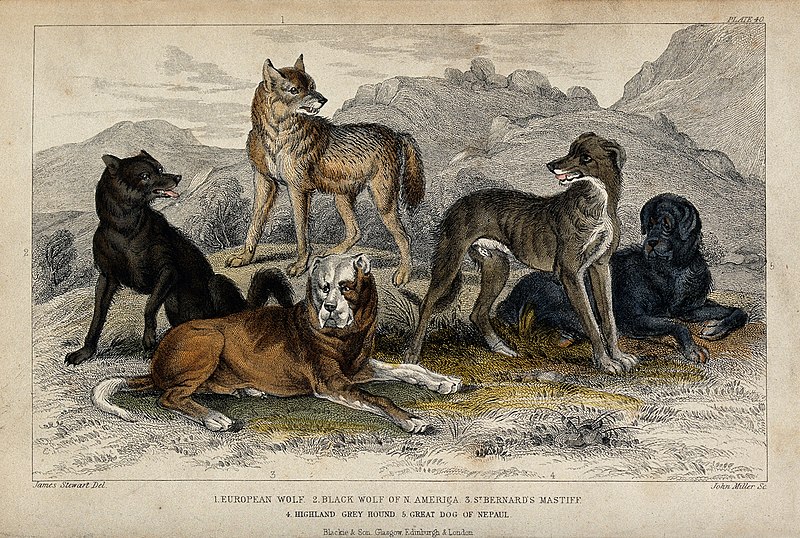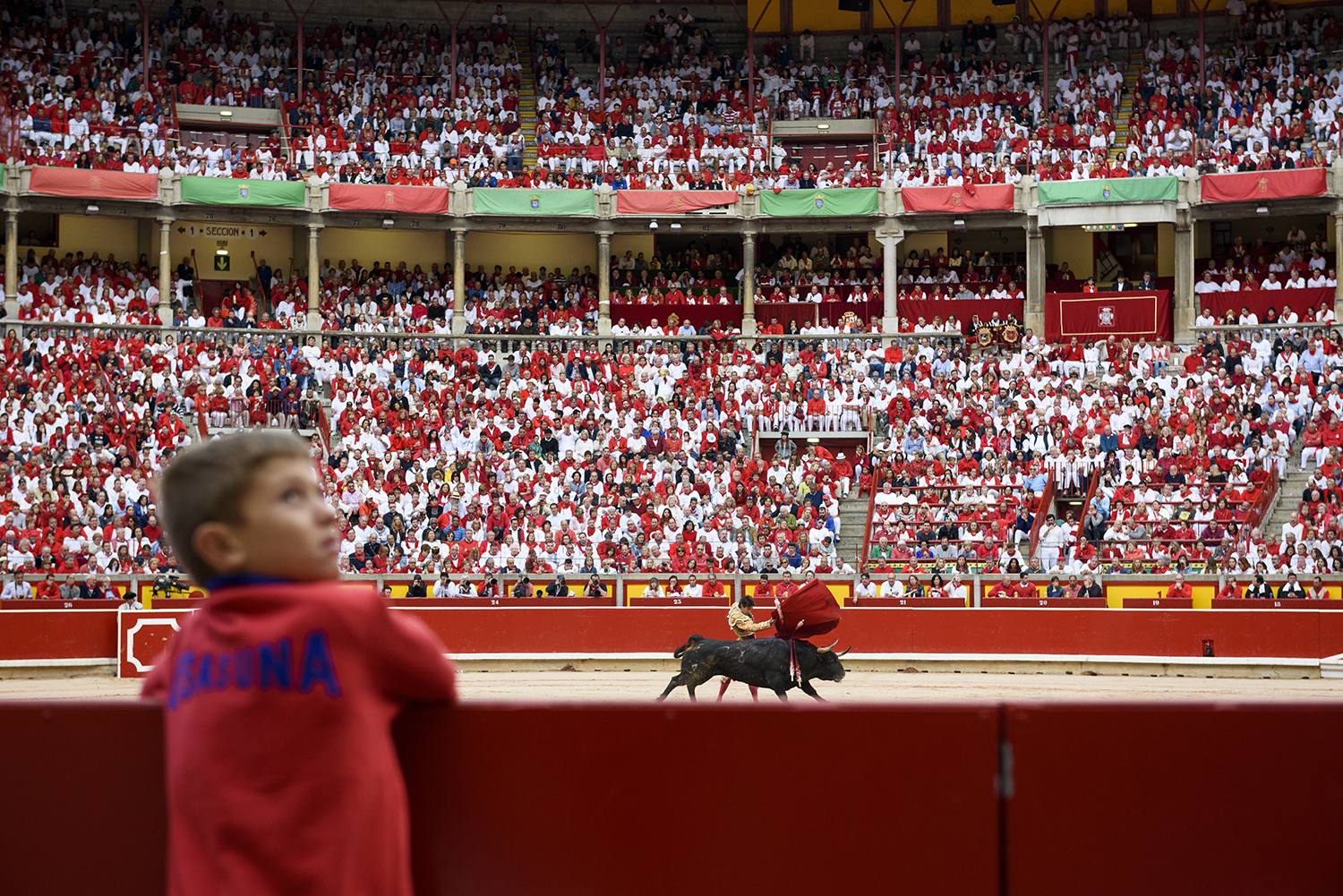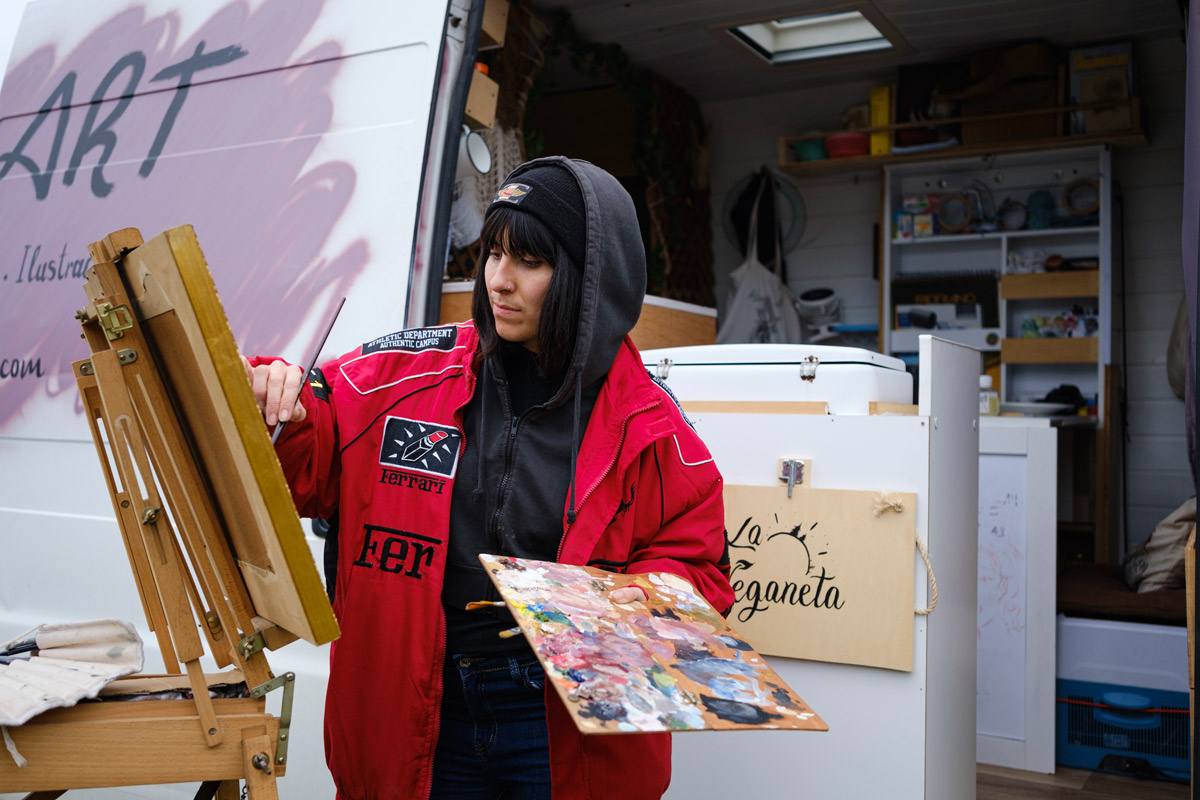Under the logic of colonialism
- “Antispecism cannot withstand Western logic; the most politicized movement will fail if it does not set aside the stories of colonialism and racism that surround that Western logic.” Daniela Cladera expressed strongly in the meetings held in May in Hernani by anti-specialists from Euskal Herria. He arrived in Barcelona seventeen years ago from the cradle of Bolivia. He studied Fine Arts; his work on feminism and anti-racist groups has led him to other fields of struggle, including anti-specialism.

One and the same, because Cladera has strongly warned that the point of view that also explains what it is to be an animal is Western, European or Christianity. According to this logic, it is the animal that has no soul and can therefore be used and pressed. The massacres in the name of colonialism have taken advantage of this idea to exploit, kill and destroy the members of those other conquered peoples: they have regarded them as soulless animals. “Today’s Europe is the result of the expolio that has been carried out for centuries in other countries; colonialism remains in place.”
Cladera has been fixed in history to relate the present with the past and, through the explanation of different processes, has brought to the current reality the rope of ideologies that were created in that past. He mentioned, for example, the domestication of animals for the environment. This domestication occurs when human groups settle in a place and become owners of it. Cladera has linked domestication in Spanish to the Latin word 'domus' (domestication). “The domus or house is a cultural space, property of the dominus, which is man. The man is the owner of the house and the family that lives in it, and they all own that dominus: their wife, their children, their slaves. Man is the father or the father of the family. That is where heritage and patriarchy come from in Spanish”. The domus or nature outside that house had been domesticated by man because of the domus of human animals.

The dog is the first animal domesticated by man. Cladera has highlighted this example and has put on the table several ideas: on the one hand, that this process of domestication is long and complex, and on the other, that implies, mainly, the destruction of the domesticated animal. “At the heart of the domestication processes of animals of the human species is a kidnapping that also denaturalizes them. Domesticating means turning the animal into a submissive being that can step and explode.”
On the other hand, Cladera added that this is a “cultural” oppression of animals of the human species: dogs are considered in many places as companions and in other cases as consumer animals. One consequence of domestication is the classification of non-human animals. There are some who are friends of man, and others take them for consumption. This consumption means the destruction of the animal. “Destroy what you consume.”
Binarism
Another of the processes addressed by Daniela Clade is the age-old debate about what the animal is. He recalled the genesis and explained that this book reflects a construction based on patriarchy: “Man owns all nature, and within it are women, animals of the species, as well as land and plants.” Cladera has put on the table the binarism that Greek thinkers have put at the center, in relation to that idea. “Plato and his followers developed this ideology of Biranism.” According to that, man was above the woman; the soul above the body; culture above nature; reason over emotion. “Plato built the logic of the pot linked to intelligence and the ability to reason, according to which it was the free man who had the power in his power, not any man. The slaves were considered savage, almost as animals, so they had the legitimacy to bite them.”

Cladera relates the process of defining what is considered an animal with a strong colonization initiated in 1492. “The history of the oppression of human animals from that moment on is related to the idea of what is considered an animal.” They came to the continent we today call America thinking that the conquerors were in India, and their inhabitants were considered from the beginning as “non-religious”. This had serious consequences: “He who had no religion had no soul, he was an animal, a being that could stand.” This logic led to the massacre of the inhabitants of these villages conquered by the conquerors. Similar is the logic of the domination and trampling of transhumant animals. Cladera clearly said: “Today’s racism is based on colonization.” And that is, the classification of men aims to maintain the power that some have over others. “For 500 years, the colonial distinction between peoples and people has been built, making them animals.”
Through colonialism, Europe outlawed America and Africa. “The Middle Ages were a dark time for the peoples of Europe; God was at the heart of all things. Colonialism was the advance of Europe, and the man of Europe put himself in the place of God. Humanism was established, but this humanism was based on violence against thousands and thousands of people. Europe increased by expolishing other peoples. This reality is present at the birth of capitalism.”
Colonization led to an increase in European cities, where consumption of the bodies of non-human animals also increased. On the periphery of these cities, infrastructures closely linked to capitalism began to be built: large slaughterhouses or those that today are considered industrial. In 1850, Chicago was the main example of this model. “Henry Ford based these types of slaughterhouses to start the assembly chains of his car factories,” said Cladera. European fascism was also based on slaughterhouse systems and used them in concentration camps. “Today, slaughterhouses are compared to the Nazi concentration camps, but the process was in itself the reverse: the slaughterhouses were used by the Nazis as an example.”

“Today, the forms of exploitation of animals of the human species are Western; the history of this exploitation is the history of the processes of Western colonization. This does not mean that other types of relationships with animals of the species were developed elsewhere. There is exploitation in other places; there are also patriarchates in other places, but the exploitation of the animals of the human species that today has triumphed is based on colonialism; the patriarchate that has dominated is also based on colonialism”, said Daniela Cladera.
This is also reflected in current popular movements, and as a mirror of Western logics they can be colonial, racist and patriarchal. This also happens in the area of antispecism, so Cladera has put at the center of his discourse the need to decolonize veganism. “If we do not neglect Western logic, we will have a colonial and racist anti-specism.” It sets an example: “Often anti-specionists talk about the superiority of human beings and leave aside that even today the men of many peoples are considered animals. The superiority of men is considered universal, but the issue is much more complex. In today’s society, it can still happen that many pet dogs have more rights than human beings considered animals.”

In addition, he recalled that the concept of intersectionality was created and developed by black feminism, and that antispecism and other struggles have made it his own, but emptying it of content and completely concealing the context in which it was developed. Cladera has also criticized the tendency to equate racism and specialism that is taking place in the Basque Country. “There are other tools to denounce oppression against animals of the human species; you don’t need to compare racism with racism, and less when you take racism as a thing of the past, setting aside all the suffering it causes.”
Clade is clear that the relationship between oppression is evident; it is also clear that the role that colonialism has played at the basis of these oppressions remains less visible to many entrepreneurs, not even in the field of anti-specialism. This brings back the Western logics that are centred on this colonialism, even when the objective is the opposite. Cladera has stressed that it is time to abandon these dynamics; to decolonize veganism and to abandon the logics of colonialism.
Animalien askapenaren aldeko mugimendu antolatuaren historiaz eta garapenaz mintzo dira hamabi ekintzaile antiespezista dokumentalean. Nor taldeak sortu du lana eta ostiralean ARGIAn izango da osorik ikusgai.
I found on the ARGIA website an article with a striking title of alliance between vegans and small farmers. I was questioned and encouraged to respond to the constructive attitude of the article that is to be welcomed. There it goes.
The commercial strategies being developed... [+]





















